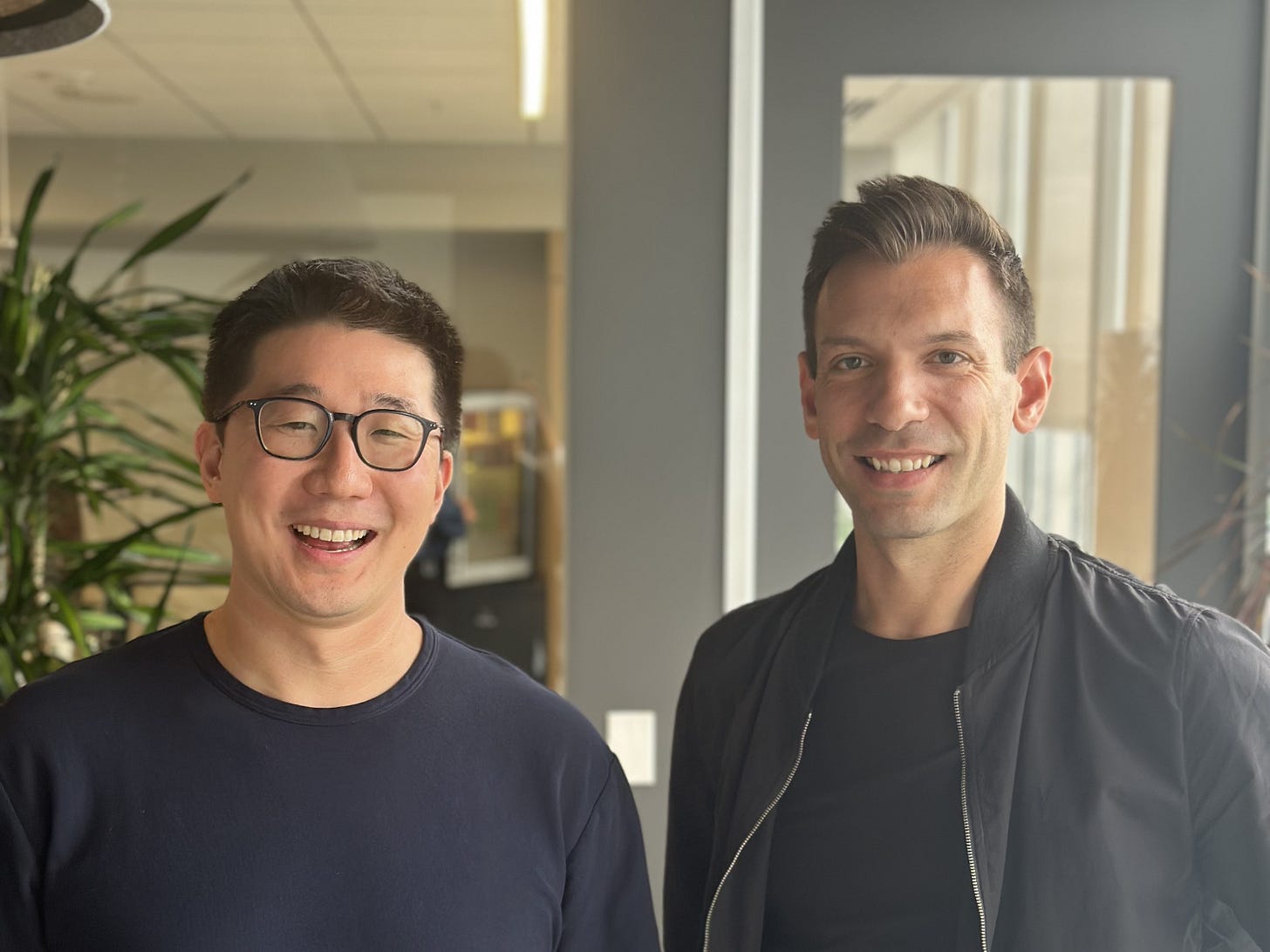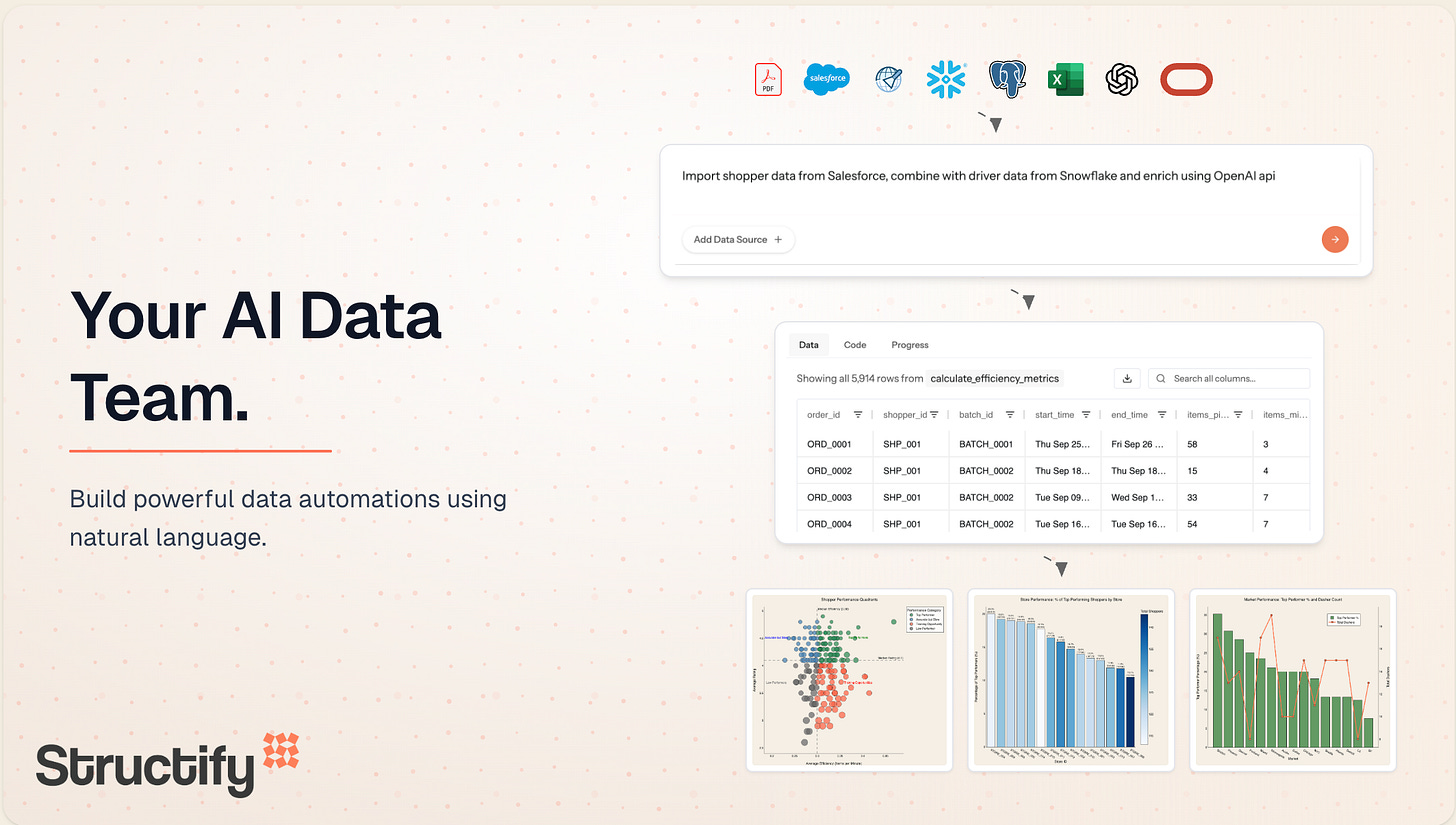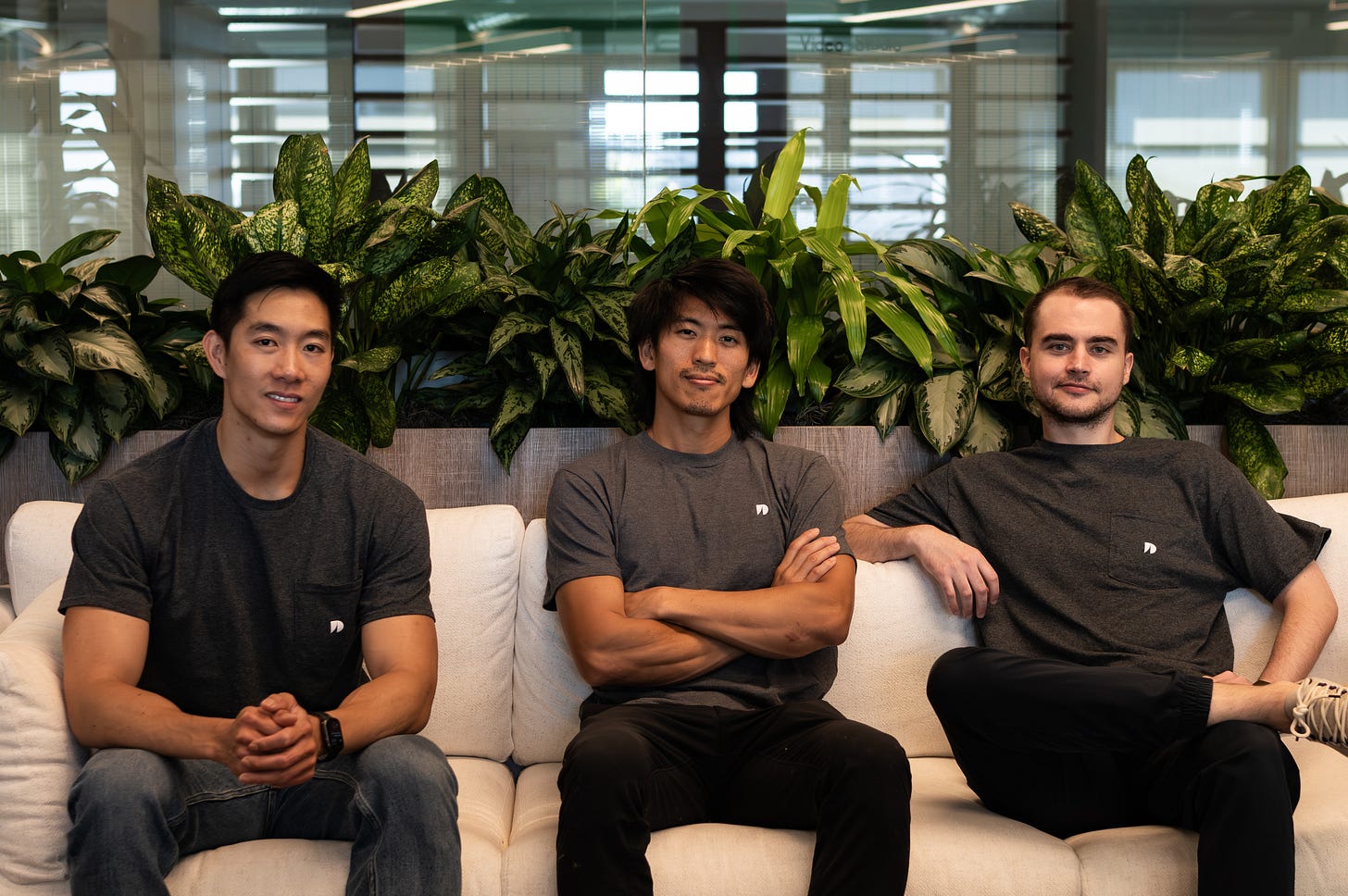Airtable Hires A CTO From OpenAI And Buys An AI 'Superagent' Startup
Upstarts chats exclusively with CEO Howie Liu about hiring away a tech leader from ChatGPT, and why Airtable will keep acquired startup DeepSky as a standalone second product.
The Upshot
Airtable CEO Howie Liu sees the new wave of vibe-coding startups like Lovable and Replit racing to add features that can take their outputs from prototypes and proofs-of-concept to enterprise-friendly apps.
He likes his chances to reach the same finish line from the opposite direction.
“Those products are trying to build underneath their magical agent layer, and it’s with components that Airtable already has,” Liu says. “We have all that scalability, reliability, components that you need to build a reliable business app very quickly.”
Airtable declared its intentions in this category a little over three months ago, when Liu unveiled Omni, an AI-powered app builder, to go with an AI assistant to help customers work with its no code database software. Airtable’s AI tools are now active for “the vast majority” of Airtable customers, which include 80% of the Fortune 100, the company says.
But Airtable has bigger ambitions in AI than just launching its own app builder. So Liu has brought in a new chief technology officer from OpenAI, and made his largest acquisition to date of a venture-backed AI agents startup, as part of his push.
Airtable has tapped David Azose, until now the engineering lead of ChatGPT’s business products, as its CTO, Upstarts can exclusively report.
A longtime Seattle resident who previously worked in engineering leadership roles at DoorDash, Uber and Microsoft, Azose started last week and will be commuting regularly to Airtable’s San Francisco base.
“I joke with folks that at this point, I know the flight numbers by heart,” Azose says.
Arriving at Airtable at the same time: DeepSky.
Formerly known as Gradient, DeepSky raised about $40 million in venture funding to date for what had pivoted from a Palantir-style business helping companies to develop AI tools, into a “superagent” builder that looked to offer investable, money-moving research for customers like investors (and became a hit with Stanford MBAs).
DeepSky’s founding trio of Chris Chang, Mark Kim-Huang and Forrest Moret, along with a dozen staffers (most of the team) will now operate it as Airtable’s second standalone product, with Chang reporting directly to Liu.
What’s the through line? Upstarts asks Liu late last week.
“In this era where things are moving fast. Speed of execution is paramount, and technical depth of how you execute on products is key,” Liu replies. “You can’t just go and build a bunch of stuff, ship it and say, ‘job done.’”
More on his strategy, why Azose picked Airtable from OpenAI, and how DeepSky’s agents can unlock more upside for Airtable (and, Liu hopes, its customers), below.
Presented by Structify.
Getting answers from your data shouldn’t take three days and two Slack threads.
Structify’s AI agents source, clean, and analyze data from anywhere — Salesforce, Snowflake, spreadsheets, PDFs, internal databases, even the web. Just ask in plain English and get instant answers.
Instead of chasing down messy data, you just ask — and Structify delivers.
No tickets. No technical skills. No waiting.
Iceberg ahead!
It’s maybe not the best metaphor, unless the secondary goal of AI tools is to guide their users into collision. But Liu compares Airtable’s recent Omni launch to such a floating hunk of ice, in the sense that most of his startup’s AI capabilities remain under the surface.
Airtable reached a $11.7 billion valuation in December 2021, during ZIRP exuberance for high-growth tech startups. It laid off hundreds of people in the following two years in a painful push for better efficiency, what Liu told Forbes at the time was a “sickening feeling.”
The trajectory is better now: Airtable has reached annualized free cash flow of $100 million and has nearly $1 billion on its balance sheet, Liu says; when it comes to the ‘Rule of 40’ that asserts that strong enterprise software businesses should have combined profit margin and revenue growth percentages that add up to at least 40%, Airtable claims to score more than 50.
But Airtable’s biggest challenge is to make sure that the AI tools it ships are more than just features or add-ons, Liu says. A meta narrative around tech circles, particularly among investors and founders hoping to sell to big enterprises, has been around slower-than-expected adoption, or disappointment in real-world value, among corporations trying out AI tools.
Some have pushed back on a MIT study that claimed that 95% of AI pilots fail, but it went viral for a reason. Questions have also dogged Salesforce, whose newly-controversial CEO Marc Benioff is currently leading a big show at Dreamforce to argue otherwise, with its Agentforce rollout.
“The hardest thing is actually delivering on any given product, as the breakthrough version of that product,” says Airtable’s Liu. While Lovable, Replit, Vercel and others take powerful app-building interfaces and look to make them more viable in production, Airtable needs to nail the interface so that people leverage its sturdy underpinnings, he adds.
That means continuing to lower the barrier to entry for building work apps with Airtable data and tools, and connecting those apps to others like ChatGPT to extend their usefulness. Enter Azose. “Quality and depth of execution on our roadmap is the biggest thing I’m looking for in David,” says Liu.
For his part, Azose says he’s used Airtable since 2017, five years after its founding; he and his team were also power users at OpenAI, where they used Airtable’s software to track and collaborate around launch plans for ChatGPT releases.
One difference with Airtable that got him excited, Azose says, is its wider non-technical user base who might not otherwise know how to ‘vibe code’ their way to deploying and sharing an app, let alone improving or updating its code.
“Maybe Airtable isn’t a household name the way ChatGPT or OpenAI might be, but the reality is that it’s extremely relevant for the Fortune 100,” Azose says. “I think once people wrap their heads around that, and see the logos on our website and how expansive our reach is in the enterprise and business space, there’s a little bit of a lightbulb for them as well.”
You may not use Airtable to menu prep for family meals like Azose does. But if he has his way, you might find it a more natural way to spin up an app within your daily workflow.
Agentic Everything
Airtable wouldn’t disclose how much it paid for DeepSky, but Liu says it’s the company’s largest acquisition to date, and two levels bigger than an acqui-hire, as Airtable wants not just its talent and its code, but to grow its existing product, too.
The argument for it is is bi-directional: Airtable can speed up adoption of DeepSky’s ‘superagent’; the superagent can unlock a wider market for Airtable apps.
Existing Airtable customers will benefit from the ability to have agents pull in more research or regularly update the tables and apps they’ve built in Airtable, shifting away from manual data entry or prompts.
DeepSky’s superagent product, meanwhile, can grow faster selling into Airtable’s customer base, while leveraging Airtable integrations to pull and structure the relevant data. (It’s easy to envision a future where the agent serves as an interface to generate Airtable apps for users who wouldn’t ask for one otherwise.)
“Candidly, app building, as much as we’ve democratized it in Airtable, is not an every single person kind of thing,” says Liu.
Acquiring DeepSky could save Airtable 6 to 12 months of time in getting such an agent to market, Liu claims. Will Airtable look to buy more startups to save in other places? Liu notes that browsers, like the one developed by startup The Browser Company, acquired last month by Atlassian, would be another natural place to look.
“What I don’t want is a chaotic scattershot of random products,” he adds.






Over the past few months, I think this kind of project or what Crosby is doing is a lot more promising for AI-based company success. Don’t swing for the fences and attempt to build AGI. Instead, find smaller use cases that are very manual or time consuming and solve them using an AI agent.
Do it enough times within a single organization and you will have a client for life.
Many of the companies I think are trying to bit off more than their AI tool can chew.